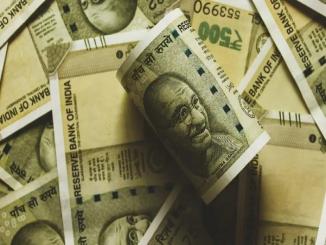
How Amazon and Walmart’s Flipkart alter and manipulate the market rules.
Ashok Kumar Gupta, Chairman of Competition Commission of India (CCI), said recently Big e-commerce firms should not offer steep discounts, must disclose discounting policies and ensure they do not drive brick-and-mortar rivals out of business. Along with this, he launched a probe against the big U.S. giants Amazon and Wal-Mart’s Flipkart.
The CCI has said India is the world’s fastest-growing e-commerce market, expected to grow at an annual rate of 51% between 2017 and 2020.
Under FDI rules, they are also barred from striking contracts with private companies for exclusive sales of certain items, for example, the OnePlus-Amazon partnership, and offering discounts.
Reuters Interview: Big e-commerce firms must disclose discounting policies and ensure they do not drive brick-and-mortar rivals out of business, India's antitrust chief Ashok Kumar Gupta said, as his commission launched a probe into Amazon and Flipkart https://t.co/IOeGLlZt5b
— Aditya Kalra (@adityakalra) January 14, 2020
How Amazon and Walmart’s Flipkart alter and manipulate the market rules.
- Deep discounting: As per the 2018-19 data, Flipkart logged a loss of Rs 3,837 crore. Flipkart India's revenue from operations, however, saw a 42.82 percent jump to Rs 30,931 crore in 2018-19 from Rs 21,657.7 crore in the previous financial year. Amazon Seller Services’ loss during the fiscal year 2018-19 narrowed to Rs 5,685 crore from Rs 6,287 crore in the previous year, even as revenue rose 54% to Rs 7,593 crore. These losses are mainly because of offering a deep discounting mechanism, most of these discounts happen during the festival seasons like Big Billion Days (BBD) of Flipkart and the Great Indian Festival of Amazon. Heavy discount is offered on Mobile and other gadgets.
- Preferred sellers: These two companies have a good number of preferred sellers. There are many instances when an exclusive launch has happened from many mobile phones. The CCI set up a probe on Amazon, Flipkart for deep discounts, preferred sellers model. The CCI investigation is based on a complaint by traders’ body Delhi Vyapar Mahasangh regarding the online sale of smartphones. The CCI is looking into allegations whether the preferred sellers are an extension of the online marketplaces, operating through different ‘proxy’ entities.
- Predatory pricing: Under FDI rules that kicked in this February, they are also barred from striking contracts with private companies for exclusive sales of certain items, for example, the OnePlus-Amazon partnership, and offering discounts.
- Preferred sellers: It has been also been alleged that most of these preferred sellers are affiliated with or controlled by Flipkart or Amazon, either directly or indirectly A similar allegation has been leveled against Amazon about its preferred seller Cloudtail India. “Amazon has own private label brands, which are sold only through these preferred sellers,” the complaint said.
- Preferential listing/promotion: Further, it needs to be investigated whether the alleged exclusive arrangements, deep discounting and preferential listing by the e-commerce platforms are being used as an exclusionary tactic to foreclose competition and are resulting in an appreciable adverse effect on competition, contravening the provisions of the Competition Act, the CCI noted.
Both Amazon and Flipkart have left no stone unturned in destroying and devastating the e-commerce and retail trade market by indulging in all kinds of malpractices including causing huge GST and income tax revenue loss to the government.



























